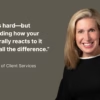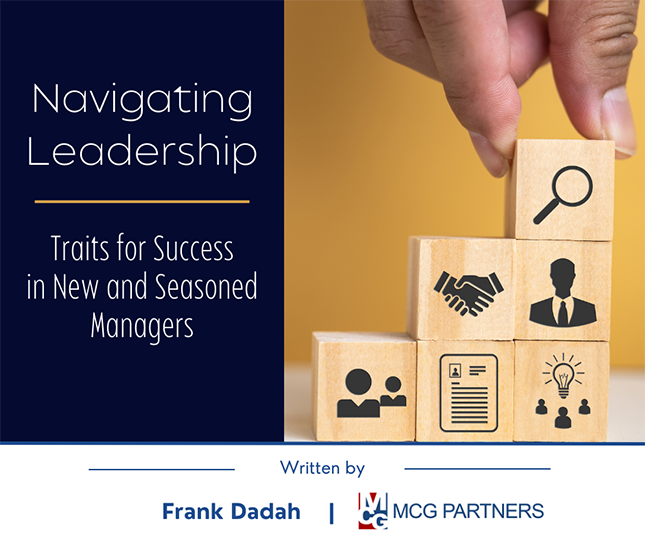
“Face to face conversation is the most human and humanizing thing we do. Fully present to one another, we learn to listen. It’s where we develop the capacity for empathy,” shares Sherry Turkle in her Book Reclaiming Conversation: The Power of Talk in a Digital Age.
When our son attended Montessori, they sent a bi-weekly newsletter with a focus on community and character building. The students defined empathy as “caring for others and thinking about how they might feel”. Being empathetic can help you when a conflict arises between two people or in a difficult situation. As you can imagine, this does not come easy for children, but I wonder if we, as adults, are doing any better?
In our current global state, we are all on a rollercoaster of emotion and the unknown. However, we should not assume we are all on the same ride and have the same reactions or skills to deal with the impact of the pandemic. Our work team has weekly Zoom “check in calls.” It is a chance to see each other, share how we are feeling – good or bad, hopefully laugh or smile and, mainly, support each other. I wanted to share two moments from our call this week.
- One of our team openly shared, “I am where she was last week with feeling very mad.” Immediately, other team members could recognize where she was and the “process” she was facing and offer the appropriate support, understanding and, most importantly, to listen.
- Secondly, we shared that not all our contacts and clients are in a place where they are remembering the importance of empathy. People are forgetting or trying to avoid asking people the most basic questions. We have made a commitment to start our calls with asking: “How are you doing?” “How are you being impacted?”
By asking a simple question, we remind people we care for them and about them as people; people with families and struggles at home, challenges with work and the world around us. We want to understand what is important to them and what/how things are affecting them. After asking any question, it is important to listen. You don’t need to react, offer suggestions or stories but just hear what they are saying and give them a safe space to share.
In a world that is constantly connected and moving, we sometimes forget to be empathetic. We have become comfortable using texts and emails to communicate. But have they just been tools to avoid conversations especially difficult or uncomfortable? How often do these forms of communication cause confusion or misinterpretation? While many are working remotely for the first time, virtual interactions and communications are increasingly important. People need interaction and connection.
Using non-face to face technology to respond to a situation allows us time to think, contemplate and then carefully determine and orchestrate our responses and reactions all without having to face another person or see their happiness, sadness or anger. We are losing our ability to be spontaneous and to be able to react in the moment. Don’t we owe people our full attention and our empathy? We are a world of social multi taskers which makes us feel like we are accomplishing a lot and really connecting with so many people. I would suggest taking the time to pick up the phone or schedule a video call to connect with your team or colleague in the new sense of a “face to face” meeting.
We need to get to a place where we can take and share feedback, understand how our words and actions impact those around us and understand the dynamics of our team members. It is not easy but being able to read a situation and work together is a great skill worth investing the time in.
The desired outcome is to have team members understand and appreciate each other and their perspectives, how to influence, actively listen, make better decisions, manage expectations, etc. It is a win-win for everyone as employees gain new skills, increase self-awareness and the team flourishes. And it can all start with a question and an empathetic ear.
About MCG Partners
MCG Partners is a leadership and talent optimization firm– aligning your business and people strategy for maximum results. MCG Partners a woman-owned consultancy and is also a Predictive Index® (PI®) certified partner. To learn more please contact John Griffith at [email protected] and at mcgpartners.com
[/fusion_text][/fusion_builder_column][fusion_builder_column type=”1_4″ layout=”1_1″ spacing=”” center_content=”no” link=”” target=”_self” min_height=”” hide_on_mobile=”small-visibility,medium-visibility,large-visibility” class=”” id=”” background_color=”” background_image=”” background_position=”left top” background_repeat=”no-repeat” hover_type=”none” border_size=”0″ border_color=”” border_style=”solid” border_position=”all” padding_top=”” padding_right=”” padding_bottom=”” padding_left=”” margin_top=”” margin_bottom=”” animation_type=”” animation_direction=”left” animation_speed=”0.3″ animation_offset=”” last=”no”][fusion_widget_area name=”avada-custom-sidebar-blogsinglepagesidebar” title_size=”” title_color=”” background_color=”” padding_top=”” padding_right=”” padding_bottom=”” padding_left=”” hide_on_mobile=”small-visibility,medium-visibility,large-visibility” class=”” id=”” /][/fusion_builder_column][/fusion_builder_row][/fusion_builder_container][fusion_builder_container hundred_percent=”no” equal_height_columns=”no” menu_anchor=”” hide_on_mobile=”small-visibility,medium-visibility,large-visibility” class=”” id=”” background_color=”” background_image=”” background_position=”center center” background_repeat=”no-repeat” fade=”no” background_parallax=”none” parallax_speed=”0.3″ video_mp4=”” video_webm=”” video_ogv=”” video_url=”” video_aspect_ratio=”16:9″ video_loop=”yes” video_mute=”yes” overlay_color=”” video_preview_image=”” border_size=”” border_color=”” border_style=”solid” padding_top=”” padding_bottom=”” padding_left=”” padding_right=””][fusion_builder_row][fusion_builder_column type=”1_1″ layout=”1_1″ background_position=”left top” background_color=”” border_size=”” border_color=”” border_style=”solid” border_position=”all” spacing=”yes” background_image=”” background_repeat=”no-repeat” padding_top=”” padding_right=”” padding_bottom=”” padding_left=”” margin_top=”0px” margin_bottom=”0px” class=”” id=”” animation_type=”” animation_speed=”0.3″ animation_direction=”left” hide_on_mobile=”small-visibility,medium-visibility,large-visibility” center_content=”no” last=”no” min_height=”” hover_type=”none” link=””][fusion_text][/fusion_text][/fusion_builder_column][/fusion_builder_row][/fusion_builder_container]







